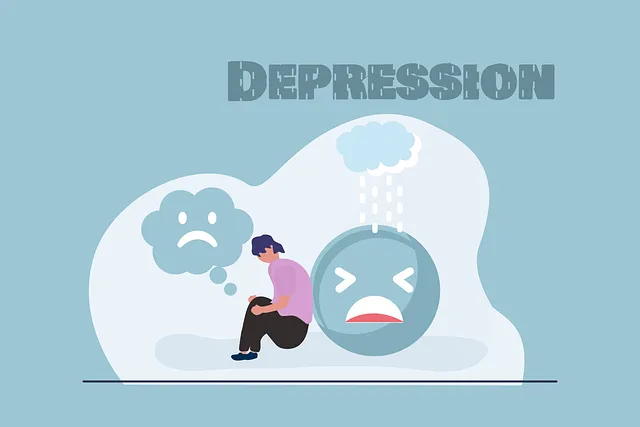Aurora Kaiser Permanente's comprehensive mental health coverage integrates self-assessment tools to empower individuals in managing their mental wellness. These tools, combining self-reported symptoms and behavioral observations, offer holistic insights into stress levels, emotional stability, and risk factors. Through structured questionnaires, personalized recommendations, and actionable strategies, they enhance access to care and encourage early identification of mental health issues. By fostering open conversations and promoting mental health awareness, Aurora Kaiser Permanente creates a supportive environment for optimal psychological well-being, setting a standard for holistic healthcare.
Mental wellness self-assessment tools play a crucial role in empowering individuals to take charge of their mental health. This article explores the development and integration of these tools, focusing on Aurora Kaiser Permanente’s innovative approach to mental health coverage. We’ll delve into key components for effective assessments, user-friendly design principles, and strategies to seamlessly integrate self-assessments into healthcare systems, enhancing access to mental wellness support.
- Understanding Mental Wellness Self-Assessment Tools
- The Role of Aurora Kaiser Permanente Mental Health Coverage
- Identifying Key Components for Effective Assessment
- Developing User-Friendly and Accurate Tools
- Integrating Self-Assessment into Mental Healthcare Systems
Understanding Mental Wellness Self-Assessment Tools

Mental wellness self-assessment tools are designed to help individuals gain a deeper understanding of their mental health and well-being. These tools, often accessible through healthcare providers like Aurora Kaiser Permanente, offer a means to assess various aspects of mental health, including stress levels, emotional stability, and risk factors associated with mental illness. By utilizing these assessments, individuals can identify areas for improvement and take proactive steps towards enhancing their mental wellness.
For those looking to improve their mental health, Mindfulness Meditation has been shown to be an effective practice. Additionally, healthcare professionals should consider implementing a Risk Assessment for Mental Health Professionals to ensure they are equipped to handle potential challenges within their own well-being. Promoting Mental Health Awareness is crucial in creating supportive environments that encourage open conversations and access to appropriate resources.
The Role of Aurora Kaiser Permanente Mental Health Coverage

Aurora Kaiser Permanente’s mental health coverage plays a pivotal role in promoting holistic well-being within its community. This comprehensive insurance program recognizes the significance of addressing mental health concerns alongside physical health, ensuring that members have access to essential services. By integrating mental wellness into primary care, Aurora Kaiser Permanente fosters an environment where individuals can openly discuss and manage their psychological well-being.
The program’s focus on preventive care encourages regular self-assessments, enabling early identification of mental health issues. This proactive approach is further enhanced through the Mental Wellness Podcast Series Production, which provides valuable resources and educates members about various aspects of mental wellness, including techniques for self-esteem improvement grounded in Mind Over Matter principles.
Identifying Key Components for Effective Assessment

In developing self-assessment tools for mental wellness, identifying key components that effectively capture an individual’s emotional and psychological state is paramount. The process should incorporate a multi-faceted approach, mirroring the complex nature of mental health. One crucial component involves integrating self-reported symptoms alongside behavioral observations, enabling a holistic view of an individual’s well-being. This dual perspective can be facilitated through structured questionnaires and direct feedback mechanisms, allowing users to reflect on their emotions, thoughts, and actions while also providing context through observable behaviors.
For instance, the Aurora Kaiser Permanente mental health coverage emphasizes comprehensive care, prompting the development of tools that assess not only diagnostic symptoms but also coping strategies and social support networks. Integrating risk management planning for mental health professionals into these assessments ensures proactive identification of potential challenges. Effective communication strategies can further enhance self-assessments by encouraging open dialogue about mood management, fostering a culture of transparency and empowering individuals to take an active role in their mental wellness journey.
Developing User-Friendly and Accurate Tools

Developing user-friendly and accurate mental wellness self-assessment tools is a crucial step in enhancing access to care, particularly with Aurora Kaiser Permanente’s commitment to mental health coverage. These tools play a pivotal role in enabling individuals to proactively manage their well-being and seek appropriate support. By incorporating innovative design principles, the latest research in mental health assessment, and leveraging technology, developers can create resources that cater to diverse user needs.
For instance, integrating features like customizable questionnaires, interactive visualizations, and personalized recommendations can significantly improve engagement and interpretation of results. Such tools should not only assess symptoms but also provide actionable strategies for stress reduction methods, anxiety relief, and even risk management planning for mental health professionals. This multifaceted approach ensures that users receive practical insights tailored to their unique circumstances, fostering a more comprehensive understanding of their mental wellness.
Integrating Self-Assessment into Mental Healthcare Systems

Integrating self-assessment tools into mental healthcare systems is a game-changer in promoting mental wellness. These assessments empower individuals to actively participate in their mental health journey, providing them with valuable insights and self-awareness. By incorporating self-assessment methods, such as questionnaires or mood tracking apps, Aurora Kaiser Permanente can enhance its mental health coverage and support. This approach allows patients to regularly monitor their emotional well-being, identify potential issues early on, and track progress over time.
For instance, encouraging patients to complete self-assessments between clinical appointments can bridge the gap in mental healthcare. These tools facilitate self-reflection and encourage open communication with healthcare providers, fostering a collaborative environment. Moreover, integrating empathy building strategies and conflict resolution techniques through these assessments can create a safe space for individuals to express their thoughts and feelings. This holistic approach ensures that mental health services become more accessible and tailored to each patient’s unique needs, ultimately improving overall Mental Health Awareness.
Mental wellness self-assessment tools play a pivotal role in empowering individuals to take charge of their mental health. By incorporating user-friendly and accurate assessments, such as those developed with consideration for Aurora Kaiser Permanente’s comprehensive mental health coverage, we can facilitate early intervention and improved outcomes. Effective tools should be backed by robust research, incorporate diverse populations, and seamlessly integrate into existing healthcare systems. As these resources gain traction, we move closer to a more holistic approach to mental healthcare, where prevention and self-care are prioritized alongside traditional treatment methods.






